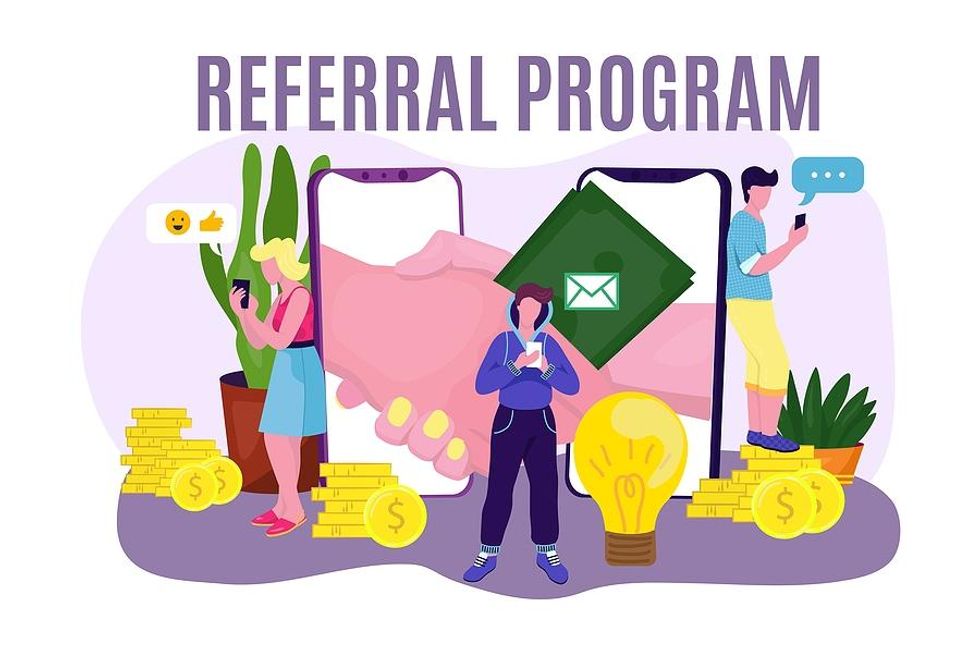
The average turnover rate currently is ~47%. If the entire team isn’t feeling engaged and appreciated, your team may be affected and part of this statistic. If so, there are things you can do to efficiently fill that vacancy with an individual who is a great fit for the team.
Where To Find Potential Job Candidates

Bigstock
Let’s start with where the potential individuals will come from. The typical pools are:
1. Internally – can you hire someone from within the organization? Internal promotions and transfers show existing employees that there are career advancement opportunities within the organization. Even when there isn’t an opening, you can help explain the skills and training needed for potential internal candidates who are interested in joining your team.
2. Externally – via a job posting, the use of a recruiter (contingent or retained), etc.
3. Referral Program – which is the best of both worlds. A “referring” internal employee is already familiar with the organization and culture. As a result, this will improve the quality of the hire for a better cultural fit which will improve the employee retention rate. This will typically reduce the time to hire and, as a result, reduce the cost per hire. And to take your referral program from “good” to great,” consider the following:
- Offer the referring employee a referral reward, bonus, and/or recognition
- Create a special “referral” process for applicants to apply (separate from the “regular” application process) so that you can more easily identify and track those individuals
If you have an opening on your team, ask for a referral from the team. A team member will have a better idea of the type of individual who would be a better cultural fit for the team, especially for hard-to-find roles.
What You Should Consider When Replacing A Team Member

Bigstock
No matter what avenue(s) you use, below are four considerations:
1. You’ll need a good relevant job description (JD). If the position has multiple levels, make sure it correctly ladders (e.g., Analyst I, Analyst II, and Analyst III) so that there is a clear path to growth. Sometimes less is more. If a JD is too detailed, then it’s unlikely that you’ll find an individual who matches 100%. Are all of the skills listed really requirements or can some be taught?
2. The team should be made up of diverse individuals. Hopefully, you have a diverse set of applicants. Diverse individuals have diverse perspectives. As a result, a diverse team will have more innovative and productive discussions and develop well-thought-out solutions. So be prepared to think outside the box when reviewing the resumes.
3. During the interview process, determine whether the applicant is a good cultural fit for the team dynamic. Ask team members to participate in the interviews and solicit their opinions about the applicants. They’ll have a good idea of the type of individual who would be a good fit for the team, especially for hard-to-find roles. In addition, not only does the team get to meet the applicants, but each applicant gets to meet the team and get a feel for the team’s dynamics.
4. When getting ready to make an offer, be empathetic and open to requests the applicant may have for a good work-life balance such as:
- Workplace – to work remotely or hybrid (instead of onsite)
- Different work schedules – they may want to have a non-traditional workday (such as a four-day workweek, 6-3 pm, 10-7 pm, etc.)
- Be open to their personal development investment requests. For more information on personal development, check out my article "Personal Development For Lifelong Learning."
When you’re intentional and take the time to build your team together, the entire team is more likely to feel and be engaged. You’ll be one step closer to having a high-performing team. For more information on building a high-performing team, check out my article "3 Ways To Retain Members Of Your High-Performing Teams."
For more information on replacing a team member for the best fit, follow me on LinkedIn!
- 3 Ways To Retain Members Of Your High-Performing Teams ›
- Executive Spotlight: How Leaders Can Motivate Employees During An Economic Downturn ›
- 6 Ways To Avoid Burning Bridges By Leaving A Job ›
- How To Deal With Getting A Bigger Workload After A Co-Worker Quits ›
- Employers: What Are You Doing to Keep Your Best People? - Work It Daily ›

 Bigstock
Bigstock Bigstock
Bigstock Bigstock
Bigstock


